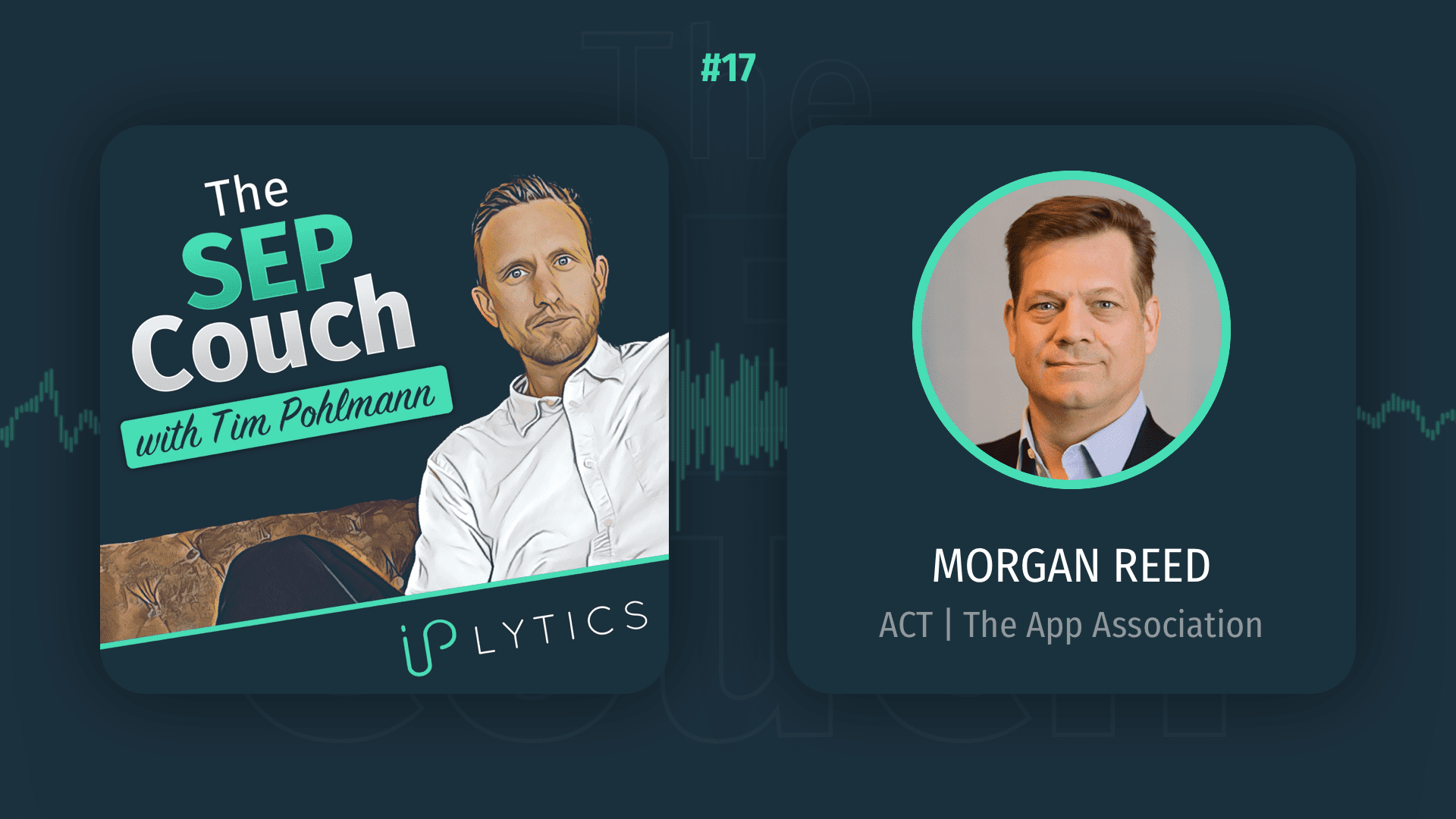How FRAND Will Work in the IoT – Episode 17

Watch on YouTube
Guest:
- Morgan Reed, President of ACT | The App Association
Morgan Reed is the president of ACT | The App Association and one of the board members of the LESI SDOs. He specializes in issues involving application development relating to privacy, intellectual property, competition, and small business innovation. His expertise and knowledge have been sought by the House and Senate in multiple hearings while his commentary and insight are a major draw for news networks including Fox Business News, MSNBC, CNBC, CNN, and ABC, the Wall Street Journal, and The Washington Post to Ars Technica and Slashdot. Morgan has authored and contributed to several white papers and is a part of the developer team for the Linux Router Project (LEAF), and remains an active Apple and iOS licensed developer. Leading the App Association, Morgan has leveraged ACT’s resources to host innovation workshops across the country. Organizing events with venture capitalists, business leaders, and attorneys, he helps to foster innovative new technologies by helping emerging businesses manage their intellectual property.
Morgen learned how to program at a very young age and first got in touch with standards development as he was involved with the implementation of the 802.11b analytics kernel. And right from the beginning also back then the question of how Intellectual Property is handled by standards was one of the major discussions.
In the podcast interview, Morgan elaborates on topics that concern SEPs and FRAND for his member companies, which are mostly innovative small medium-sized companies. Morgen stresses that the ACT members find IoT use cases increasingly important in developing software and products e.g. for agriculture, healthcare, or even firefighting. When looking at IoT and connectivity his members are concerned about SEP licensing practices and in particular that the SEP holders can choose where to license SEPs in the value chain no matter who actually implements a standard such as 5G. The ACT members are often small or medium-sized companies that source hardware and software from other companies to build a new product. But with a SEP license, they will always be in a position of legal uncertainty and will not know the price they may eventually have to pay at some point. Morgan explains that typically small players are not approached in the beginning but once you get bigger you get a call, which in his opinion, makes it worse.
In another discussion, Morgen discussed injunctions in the context of SEPs. Here he stresses that injunctions are of course important to enforce IP rights, but injunctions should be very rare given the potential to put a level of pressure on companies to enforce prices for SEPs that are not FRAND anymore.
ACT members need a balanced IP system and an ecosystem where standards work. ACT members will be the ones who will build and create the next new inventions the whole world will depend on and SEP holders should have the interest to let that happen.
